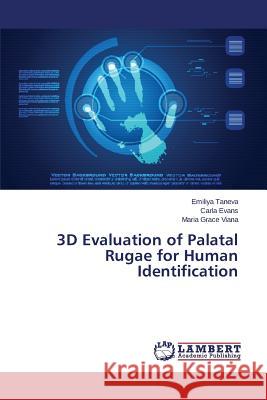topmenu
Wyniki wyszukiwania:
wyszukanych pozycji: 6
 |
Ocena 3D fald podniebiennych do identyfikacji osób
ISBN: 9786209270185 / Polski / Miękka / 2025 / 96 str. Termin realizacji zamówienia: ok. 10-14 dni roboczych. |
cena:
245,56 |
 |
Évaluation 3D des plis palatins pour l'identification humaine
ISBN: 9786209275302 / Francuski / Miękka / 2025 / 92 str. Termin realizacji zamówienia: ok. 10-14 dni roboczych. Les objectifs de cette étude étaient d'évaluer les motifs des rides palatines à l'aide de modèles numériques tridimensionnels (3D) ; de comparer les techniques de conversion de modèles numériques pertinentes pour l'identification ; de développer un protocole pour l'enregistrement par superposition ; de déterminer les changements dans les motifs individuels des rides palatines au fil du temps et après un traitement orthodontique ; et d'étudier l'efficacité et la précision des processus de correspondance 3D entre différents individus. Cinq coupes transversales dans la dimension...
Les objectifs de cette étude étaient d'évaluer les motifs des rides palatines à l'aide de modèles numériques tridimensionnels (3D) ; de comparer...
|
cena:
245,56 |
 |
Valutazione 3D delle rughe palatali per l'identificazione umana
ISBN: 9786209272745 / Włoski / Miękka / 2025 / 92 str. Termin realizacji zamówienia: ok. 10-14 dni roboczych. |
cena:
245,56 |
 |
3D-Auswertung von Gaumenfalten zur Identifizierung von Personen
ISBN: 9786209280429 / Niemiecki / Miękka / 2025 / 92 str. Termin realizacji zamówienia: ok. 10-14 dni roboczych. Die Ziele dieser Studie waren die Bewertung der Muster der Gaumenfalten anhand dreidimensionaler (3D) digitaler Modelle, der Vergleich relevanter Techniken zur Konvertierung digitaler Modelle für die Identifizierung, die Entwicklung eines Protokolls für die Überlagerungsregistrierung, die Ermittlung von Veränderungen der individuellen Muster der Gaumenfalten im Zeitverlauf und nach kieferorthopädischer Behandlung sowie die Untersuchung der Effizienz und Genauigkeit von 3D-Abgleichprozessen zwischen verschiedenen Personen. Fünf Querschnitte in der anterior-posterioren Dimension und vier...
Die Ziele dieser Studie waren die Bewertung der Muster der Gaumenfalten anhand dreidimensionaler (3D) digitaler Modelle, der Vergleich relevanter Tech...
|
cena:
245,56 |
 |
Avaliação 3D das rugas palatinas para identificação humana
ISBN: 9786209267628 / Portugalski / Miękka / 2025 / 92 str. Termin realizacji zamówienia: ok. 10-14 dni roboczych. |
cena:
245,56 |
 |
3D Evaluation of Palatal Rugae for Human Identification
ISBN: 9783659696381 / Angielski / Miękka / 2015 / 96 str. Termin realizacji zamówienia: ok. 10-14 dni roboczych. The aims of this study were to evaluate palatal rugae patterns using three-dimensional (3D) digital models; to compare relevant digital model conversion techniques for identification;to develop a protocol for overlay registration;to determine changes in palatal rugae individual patterns through time and following orthodontic treatment;and to investigate the efficiency and accuracy of 3D matching processes between different individuals.Five cross sections in the anteroposterior dimension and four cross sections in the transverse dimension were used to compute eighteen 2D variables.Thirteen 3D...
The aims of this study were to evaluate palatal rugae patterns using three-dimensional (3D) digital models; to compare relevant digital model conversi...
|
cena:
245,56 |










